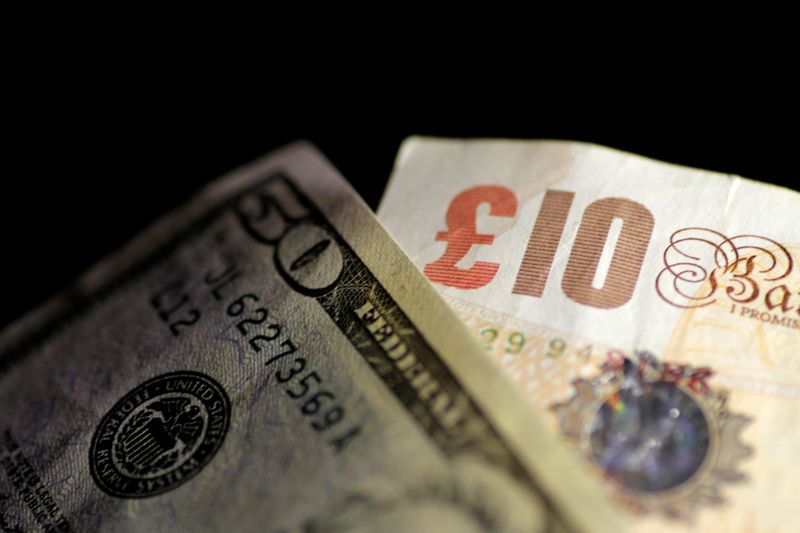By Harry Robertson
LONDON (Reuters) - The pound eked out a small gain on Tuesday in thin trading ahead of the Christmas holidays, but was on track for its strongest quarterly gain against the dollar since 2009.
Currency traders were focused on the Japanese yen, which jumped after the Bank of Japan (BoJ) unexpectedly tweaked a key policy.
Sterling was last up 0.1% against the dollar at $1.216, having fluctuated in and out of positive territory in morning trading in London.
The euro was 0.15% higher against sterling at 87.49 pence, meanwhile, after falling earlier in the session.
"Price action in the pound is reflective of thin market liquidity conditions, as is usually the case around this time of the year," said Simon Harvey, head of FX analysis at Monex Europe.
Adam Cole, chief currency strategist at RBC Capital Markets, said: "GBP came off a bit on the BoJ announcement, as did most other G10 currencies on the view that Japanese investors may bring assets home. But even that has faded now and there is nothing much in the calendar to shake things up."
The BoJ surprised global investors by tweaking its bond yield control policy on Tuesday. It will now allow the 10-year bond yield to move 50 basis points either side of its 0% target, from 25 basis points previously.
Japanese bond yields spiked and the yen soared. The dollar was last down 3.22% at 132.46 yen.
POUND SET FOR SOLID QUARTER
The pound has surged 8.8% against the dollar in the final three months of the year, putting it on track for its best quarter for more than 13 years.
A sharp slowdown in U.S. inflation has caused traders to bet the Federal Reserve will soon stop hiking interest rates, sending the dollar tumbling against major currencies.
The Fed has raised rates more than other major economies in 2022, drawing investors towards dollar-denominated assets. But that differential could soon close, potentially putting investors off the greenback.
However, the pound remained about 10% lower for the year against the dollar on Tuesday, and 4% lower against the euro.

Analysts are pessimistic about the outlook for sterling, with the British economy seen as likely to fare worse than its major peers in the coming years.
Goldman Sachs (NYSE:GS) expects the pound to fall to $1.07 within three months, and stand at $1.11 in six months.